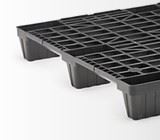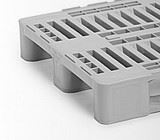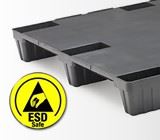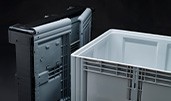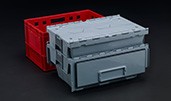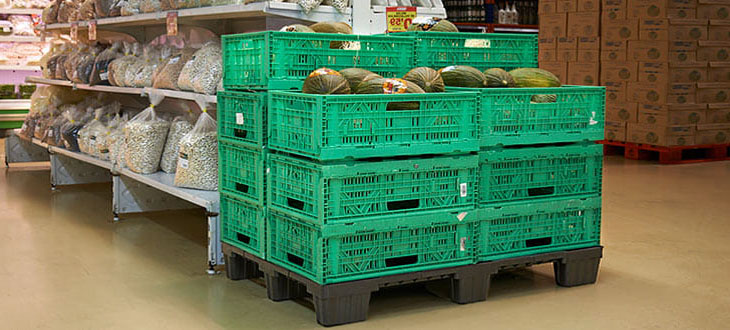To prolong the life of fruit and vegetable products as much as possible, from the moment they are harvested until they are distributed to supermarkets, it is very important to properly choose the logistics solutions that best adapt to your breathing and perspiration processes during the times of transfer and shipping.
For this reason, one of the logistical elements in which more and more clients place their trust and which is being used the most within the agri-food sector to improve the transport and storage of vegetable and fruit products are plastic pallets and containers.
The increase in demand and interest in this type of solutions is clear and evident during the celebration of the different agricultural fairs and exhibitions that take place inside and outside our borders, such as the one that, for example, will take place next May (from 22 to 24) in Almería and in which Naeco, previously Nortpalet will participate as an exhibitor.
They are spaces where you can know all the benefits, uses and applications that plastic pallets can offer to this sector. Do you want to know more about its main advantages? Take note!
What advantages do plastic pallets offer to fruit and vegetable products?
To properly handle and export fruits and vegetables, fresh merchandise with high turnover, short expiration date and very sensitive to the effects of humidity, needs to be transported on pallets and reusable plastic containers, 100% waterproof, hygienic and highly effective against bacterial foci, infections and parasites.
Therefore, the plastic packaging element, whether in a box or pallet format for storing and transporting vegetables, is ideal when it comes to ensuring that these foods are preserved well for longer and reach the final consumer in perfect condition. As they are solutions specially designed for the sector, it means that in addition to complying with the current international NIMF-15 regulations, they comply with a series of essential requirements that benefit and protect the quality of said food product. From the Naeco, (previously Nortpalet) team we highlight some of its advantages:
• They favor the ventilation of fruits and vegetables. The horticultural plastic pallets and some pallet boxes like the model (FB1210) are grating. The grate is widely used to transport and store fruit, since they favor the respiration and perspiration of said foods, improving their conservation and keeping them fit for consumption for a longer period.
• They are intended for air export. Some models of pallets, such as the BASIC 1210-O9 AIR, are very light, making them perfect for transporting fruits and vegetables on board an airplane to other continents and markets. Among its advantages we would highlight four: they allow the transport of more units per trailer when empty, which optimizes the transport costs of the empty pallet; keep the quality of the product intact during the journey; reduce warehouse space and save air transport costs as it is a much lighter product than conventional pallet. But without a doubt, the advantage that makes the difference in export pallets is that the plastic complies with the ISPM-15. This means that the pallets do not have to receive any phytosanitary treatment to be used and therefore their price, on occasions, is much lower than that of the wooden pallets that must be treated.
• They are hygienic and immune to infections and parasites. The plastic material with which Naeco, previously Nortpalet manufactures its pallets and containers avoids the creation of bacterial foci, thus guaranteeing a high level of hygiene and wholesomeness in the food it transports. To carry out internal logistics activities, it is advisable to use products from the EXPERT and LOGIC ranges.
• They are reusable elements. Most of the fruit and vegetable sector uses ERT for the transport of fruit and vegetables. These are reusable plastic pallets that offer a longer product life cycle, better visual impact and reduce waste in the logistics circuit. Thanks to its longer life cycle, costs per use or movement are significantly reduced.
• They are durable and very resistant. The fact that they are made of polypropylene, and totally suitable for food use, means that they are elements that better resist sudden changes in temperature, shocks, and strong impacts. They work great for both shipping and storage of fruits and vegetables. And there are different models depending on the use that will be given to them that allow optimizing the costs of the pallet and maximizing its result within the circuit.
Conclusion
The high hygienic conditions and its absolute efficiency in closed circuits with high turnover make the pallet and plastic container the ideal transport and storage solution for fruits and vegetables. This fact, together with its excellent properties for the distribution of fresh products, is just one of the many reasons why plastic is a widely used material in the fruit and vegetable sector. And your company, what kind of logistics element does it use to move products from the field to the store?



